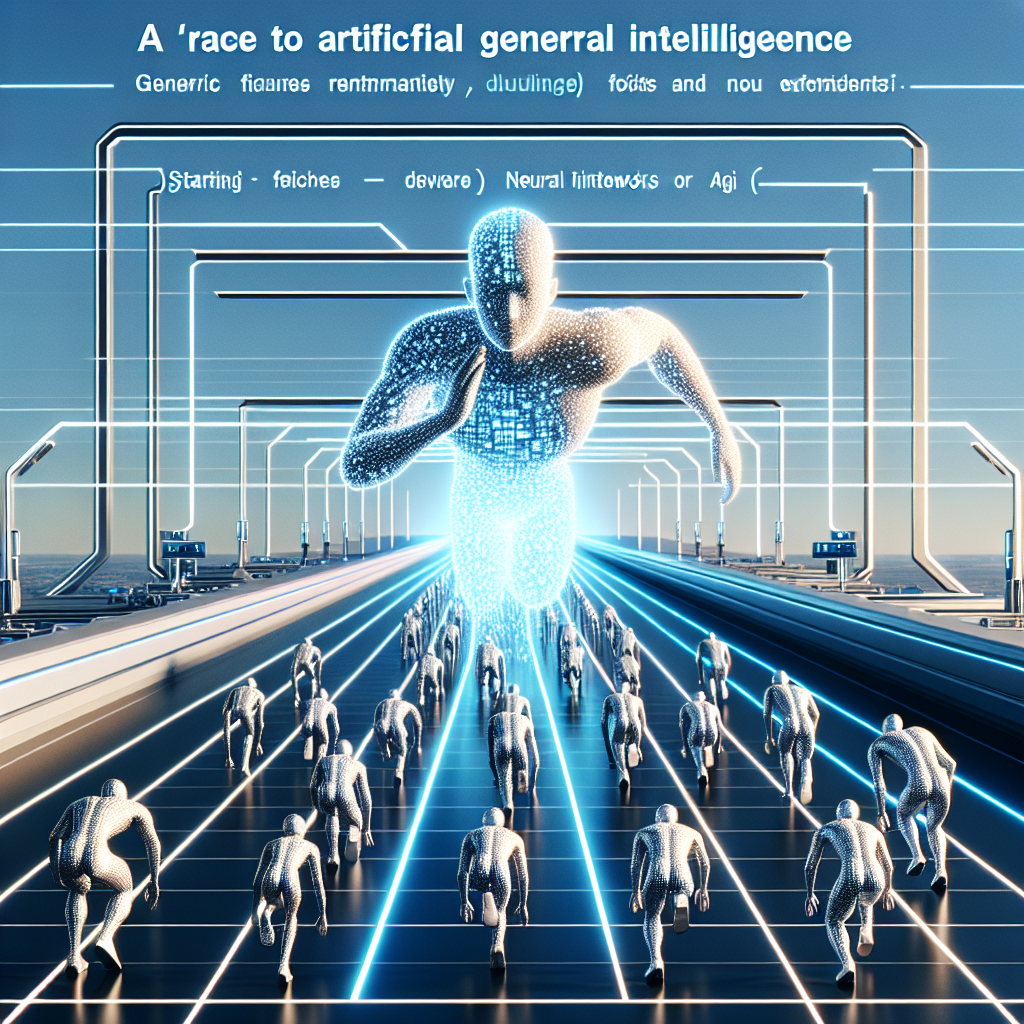The Race to AGI: Who Will Lead the Charge in Developing Advanced AI?
Artificial General Intelligence (AGI) refers to a type of artificial intelligence that is capable of understanding and learning any intellectual task that a human being can. While current AI systems are designed for specific tasks and functions, AGI aims to emulate human-like cognitive abilities, such as reasoning, problem-solving, and self-improvement.
The development of AGI has become a hot topic in the world of technology and artificial intelligence, with many companies and research organizations competing to be the first to achieve this milestone. The implications of AGI are vast and far-reaching, from revolutionizing industries to potentially changing the way we live and work.
In this article, we will explore the race to AGI, the key players involved, and the challenges and opportunities that lie ahead.
The Key Players in the Race to AGI
Several companies and research organizations are leading the charge in developing advanced AI and striving towards AGI. Some of the key players include:
1. Google DeepMind: DeepMind is a leading AI research lab owned by Google. They have made significant advances in AI research, particularly in the fields of reinforcement learning and deep learning. DeepMind’s AlphaGo program famously defeated the world champion Go player in 2016, showcasing the potential of AI in complex strategic games.
2. OpenAI: OpenAI is a non-profit research organization dedicated to developing safe and beneficial AI. They have made significant contributions to the field of AI research, including the development of GPT-3, a powerful language model that can generate human-like text.
3. IBM: IBM has been a pioneer in AI research for decades, with projects such as Watson and Deep Blue showcasing the company’s prowess in developing advanced AI systems. IBM continues to invest heavily in AI research and development, with a focus on applications in healthcare, finance, and other industries.
4. Microsoft: Microsoft has also been a major player in the AI space, with projects such as Cortana and Azure AI showcasing the company’s capabilities in developing AI-powered products and services. Microsoft has made significant investments in AI research and development, with a focus on creating AI systems that are safe, transparent, and fair.
5. Tesla: Tesla is known for its advancements in autonomous driving technology, with its Autopilot system showcasing the potential of AI in transportation. Tesla’s CEO, Elon Musk, has been vocal about the importance of developing advanced AI systems in a safe and responsible manner.
Challenges and Opportunities in Developing AGI
While the race to AGI presents exciting possibilities for the future of AI, there are also significant challenges that must be overcome. Some of the key challenges in developing AGI include:
1. Safety and ethics: As AI systems become more advanced, there are concerns about the potential risks and unintended consequences of deploying AGI. Ensuring that AI systems are safe, ethical, and aligned with human values is crucial to prevent misuse and harm.
2. Generalization and transfer learning: One of the key challenges in developing AGI is enabling AI systems to generalize from one task to another and transfer their knowledge and skills to new domains. Current AI systems are often limited in their ability to generalize and adapt to new situations.
3. Data bias and fairness: AI systems are only as good as the data they are trained on, and there are concerns about bias and fairness in AI algorithms. Ensuring that AI systems are unbiased, transparent, and fair is essential to building trust and confidence in AI technology.
4. Human-AI collaboration: Developing AGI will require close collaboration between humans and AI systems, as well as the development of AI systems that can understand and interact with humans in a natural and intuitive way. Finding the right balance between human control and AI autonomy is essential for the successful deployment of AGI.
Despite these challenges, the race to AGI also presents exciting opportunities for innovation and advancement in AI technology. AGI has the potential to revolutionize industries such as healthcare, finance, transportation, and education, as well as to create new opportunities for economic growth and societal progress.
FAQs
Q: When will AGI be achieved?
A: The timeline for achieving AGI is uncertain, with some experts predicting that AGI could be achieved within the next few decades, while others believe that it may take much longer. The development of AGI is a complex and multi-faceted challenge that requires advances in AI research, technology, and ethics.
Q: What are the potential risks of AGI?
A: There are concerns about the potential risks of AGI, including the misuse of AI systems, job displacement, ethical dilemmas, and unintended consequences. Ensuring that AGI is developed in a safe, ethical, and responsible manner is crucial to prevent harm and ensure the benefits of AI technology are maximized.
Q: How can we ensure that AGI is safe and beneficial?
A: Ensuring the safety and beneficial impact of AGI requires a multi-disciplinary approach that includes AI research, ethics, policy, and governance. Developing AI systems that are aligned with human values, transparent, and fair is essential to building trust and confidence in AI technology.
Q: What are the potential applications of AGI?
A: AGI has the potential to revolutionize industries such as healthcare, finance, transportation, and education, as well as to create new opportunities for economic growth and societal progress. The applications of AGI are vast and far-reaching, with the potential to transform the way we live and work.
In conclusion, the race to AGI is on, with companies and research organizations around the world competing to be the first to achieve this milestone. While there are significant challenges to overcome, the potential benefits of AGI are vast and far-reaching, with the potential to revolutionize industries, create new opportunities for economic growth, and improve the quality of life for people around the world. By working together to develop AGI in a safe, ethical, and responsible manner, we can harness the power of AI technology to create a better future for all.

